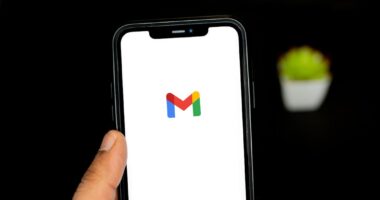A well-thought-out marketing strategy is crucial for success in the fiercely competitive music industry of today. In order to properly promote their work and connect with their target audience, musicians and artists can use a music marketing plan as a roadmap. This blog post will examine the essential elements of a music marketing strategy & offer illustrations of tactics that have worked in the past. A comprehensive collection of data pertaining to the music industry is called a music industry database. It contains information on musicians, record labels, live music venues, promoters, and other business people. For artists & musicians to advance their careers, access to a Music Industry Database is essential as it offers insightful information and connections.
Key Takeaways
- A music marketing plan is essential for maximizing exposure and success in the music industry.
- Understanding the music industry database can help you identify target audiences and potential collaborators.
- Music promotion is crucial for building a fanbase and generating buzz around your music.
- Crafting an effective music marketing strategy involves setting clear goals and utilizing a variety of promo techniques.
- Social media and building relationships with music influencers are powerful tools for promoting your music and expanding your reach.
Popular databases used by the music industry are Discogs, AllMusic, and MusicBrainz. For any artist or musician to succeed, music promotion is essential. It entails educating & piqueing the target audience’s interest in their music. Even the most skilled musicians may find it difficult to become known and achieve the degree of success they want without efficient marketing. Music promotion comes in a variety of forms, such as press releases, radio airplay, internet advertising, and live performances.
Artists and musicians need to take a methodical approach when developing a successful music marketing strategy. The following actions are to think about: 1. Establish Goals & Objectives: Make sure you know exactly what you hope to accomplish from your music marketing campaigns. Having clear goals will help you stay focused and track your progress, whether your goals are to gain more followers, book more shows, or sign with a record label. 2.
Determine Your Target Audience: Getting the right people to see your marketing messages requires that you have a clear understanding of who your target audience is. Get to know your ideal fans’ characteristics, tastes, and habits by conducting market research. 3. Create a Unique Selling Proposition: Find a way to set yourself apart from other artists by creating a USP. Describe what makes your music unique and what makes you stand out from the competition. 4. Select the Correct Channels: Ascertain which channels will best enable you to connect with your intended audience. Some examples of this could be traditional media channels, music blogs, social media platforms, and music streaming services.
| Metrics | Results |
|---|---|
| Number of social media followers | 10,000 |
| Number of email subscribers | 5,000 |
| Number of website visitors | 50,000 |
| Number of streams on Spotify | 100,000 |
| Number of views on YouTube | 50,000 |
| Number of downloads on iTunes | 10,000 |
| Number of merchandise sales | 1,000 |
Concentrate your efforts on the channels that will produce the greatest outcomes. 5. Establish a Content Calendar: Arrange your marketing initiatives ahead of time by putting together a content calendar. This will support your organization and guarantee a steady stream of interesting content for your readers. Artists and musicians can use a variety of music promotion strategies to reach a wider audience and build relationships.
Let’s examine a few of the most well-liked ones:1. Online advertising: Use tools like Instagram, Facebook, and Google Ads to target users with ads that are specifically relevant to them. This could boost your exposure and encourage people to listen to your music. 2. Radio Airplay: You can reach a larger audience and greatly increase your visibility by having your music played on radio stations.
To improve your chances of getting airplay, submit your music to online and local radio stations. You should also think about hiring a radio promoter. Three. Press Releases: Write effective press releases to highlight upcoming performances, new music releases, or other significant events. Send them out to bloggers, music journalists, & influential people in the industry to get media attention. 4.
Live performances are a great way to interact with your audience and show off your skills. To increase visibility and develop a following, schedule performances at regional fairs, festivals, & events. In today’s digital age, social media has become an indispensable tool for music marketing. These pointers can help you establish a powerful online presence on social media: 1. Select the Proper Platforms: Determine which social media channels your intended audience utilizes the most frequently.
To increase your audience & level of engagement, concentrate your efforts on those portals. 2. To keep your audience interested on social media, post content on a regular basis. Consistency is key. This could contain news about your music, collaborations, live performances, & behind-the-scenes videos. 3. Interact with Your Audience: Answer letters, notes, and mentions from your followers. Express gratitude for their assistance and foster a feeling of community around your music. 4.
Work Together with Influencers: Assist social media influencers in the music industry who have a sizable fan base. Their support can help you become more credible and expose your music to a larger audience. People who can help you promote your music are known as music influencers; they are important figures in the music industry. Developing connections with these influencers can be very advantageous for your professional life.
The following advice can help you get in touch with music influencers:1. Investigate and Find Influencers: Find influencers who share the same interests as your target market and genre of music. Get to know their interests and preferences by engaging with their content on social media and by following them. 2. Customize Your Outreach: Express genuine interest in the work of influencers and personalize your messages to them. Describe how you can add value to them and why you think their audience would connect with your music. Three.
Provide Incentives: You might want to think about giving influencers first dibs on your music, merchandise, or events. This can encourage them to spread the word about your music & boost their interest in your business. The secret to drawing in listeners and making an impact is producing music content of the highest caliber. To produce engaging music content, consider the following advice:1. Prioritize quality: Make a professional mastering, mixing, & recording investment to make sure your music sounds polished and professional.
A well-produced song can have a big impact on how people listen to it. 2. Tell a Story: Write songs that elicit strong feelings or tell a story. In addition to strengthening the bond between you and your listeners, this can help make your music more memorable. 3.
Besides your songs, produce eye-catching visual materials like music videos, lyric videos, and album covers. Adding images can improve the whole experience and increase the virality of your music. 4. Together with introducing your music to new listeners, collaborating with other artists can help you reach a wider audience.
Think about working together on music videos, live shows, or social media posts. It’s critical to monitor the success of your music marketing strategy & make any necessary adjustments to guarantee its efficacy. Here are a few methods to gauge your advancement:1.
Keep an eye on key metrics: Keep an eye on things like ticket sales, website traffic, social media engagement, and streaming numbers. This will assist you in determining how effective your marketing is & where you can make improvements. 2. Examine Audience Input: Keep an eye out for comments, messages, and reviews from your audience. This can help you make wise decisions by giving you insightful information about how your music is being received.
Three. Modify Your Approach: Adapt your music marketing plan in light of your findings. Try a variety of methods, platforms, & messaging to maximize your efforts & get better outcomes. In conclusion, making the most of exposure and succeeding in the music business requires a carefully thought-out music marketing strategy. Artists & musicians can connect with their target audience and promote their music more effectively if they understand the value of a music industry database, the effectiveness of music promotion, & the different approaches & strategies that are available.
Now is the moment to act & begin putting these strategies into practice to advance your career in music.
Looking for a music marketing plan example to boost your music career? Check out this insightful article on MusicPromotion.tech that provides a comprehensive guide on creating an effective music marketing plan. From defining your target audience to utilizing social media platforms and building an online presence, this article covers all the essential steps to help you promote your music successfully. Don’t miss out on this valuable resource – click here to read the article and take your music marketing strategy to the next level!
FAQs
What is a music marketing plan?
A music marketing plan is a strategic plan that outlines the steps and tactics that a musician or music company will take to promote and sell their music.
Why is a music marketing plan important?
A music marketing plan is important because it helps musicians and music companies to identify their target audience, set goals, and create a roadmap for achieving those goals. It also helps to ensure that resources are used effectively and efficiently.
What are some components of a music marketing plan?
Some components of a music marketing plan include identifying the target audience, setting goals, creating a budget, developing a promotional strategy, and measuring the success of the plan.
What are some examples of promotional strategies in a music marketing plan?
Some examples of promotional strategies in a music marketing plan include social media marketing, email marketing, influencer marketing, live performances, and collaborations with other musicians or brands.
What are some common mistakes to avoid when creating a music marketing plan?
Some common mistakes to avoid when creating a music marketing plan include not identifying a specific target audience, not setting realistic goals, not creating a budget, not measuring the success of the plan, and not adapting the plan as needed.





